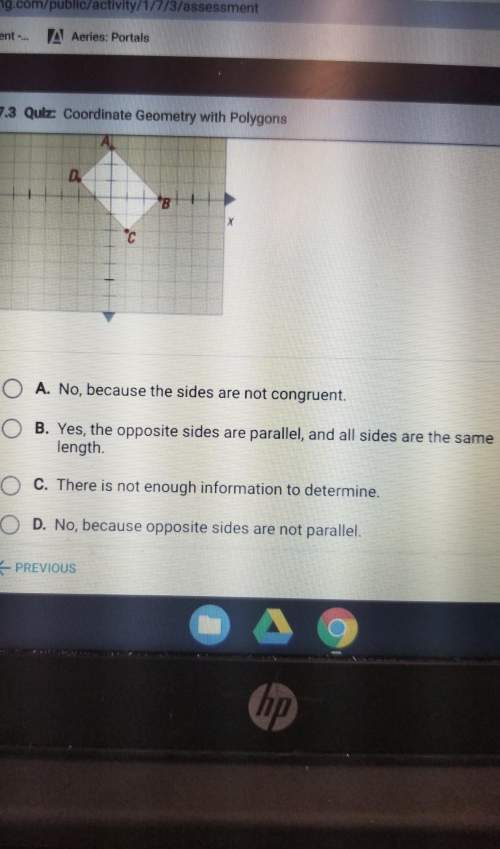
Mathematics, 19.04.2021 18:40 XynonAdat
A company is sued for job discrimination because only 39% of the newly hired candidates were minorities or women when 47% of all applicants were minorities or women. Is this strong evidence that the company’s hiring practices were discriminatory? a) Is this a one-tailed or two-tailed test? b) In this context what is a Type I error? c) In this context what is a Type II error? d) Which type error would the company consider to be more serious? e) Which type error might job applicants consider to be more serious?

Answers: 1


Other questions on the subject: Mathematics


Mathematics, 21.06.2019 18:00, peytondavis2424
Plz determine whether the polynomial is a difference of squares and if it is, factor it. y2 – 196 is a difference of squares: (y + 14)2 is a difference of squares: (y – 14)2 is a difference of squares: (y + 14)(y – 14) is not a difference of squares
Answers: 1

Mathematics, 21.06.2019 22:00, Jasten
(05.02)a farmer has decided to divide his land area in half in order to plant soy and corn. calculate the area of the entire area so he knows how much soil is needed. a parallelogram with a height of 6 yards and side length 9 yards. the height forms a triangle with the slanted side of the rhombus with a base of 2.5 yards. rhombus is split into a soy half and a corn half. each bag of soil covers 40 square yards. how many bags should the farmer purchase?
Answers: 3

Mathematics, 21.06.2019 22:30, thelonewolf5020
Amachine that produces a special type of transistor (a component of computers) has a 2% defective rate. the production is considered a random process where each transistor is independent of the others. (a) what is the probability that the 10th transistor produced is the first with a defect? (b) what is the probability that the machine produces no defective transistors in a batch of 100? (c) on average, how many transistors would you expect to be produced before the first with a defect? what is the standard deviation? (d) another machine that also produces transistors has a 5% defective rate where each transistor is produced independent of the others. on average how many transistors would you expect to be produced with this machine before the first with a defect? what is the standard deviation? (e) based on your answers to parts (c) and (d), how does increasing the probability of an event a↵ect the mean and standard deviation of the wait time until success?
Answers: 3
You know the right answer?
A company is sued for job discrimination because only 39% of the newly hired candidates were minorit...
Questions in other subjects:

Arts, 18.11.2020 01:00



Mathematics, 18.11.2020 01:00

Mathematics, 18.11.2020 01:00

Chemistry, 18.11.2020 01:00

Chemistry, 18.11.2020 01:00



Health, 18.11.2020 01:00




